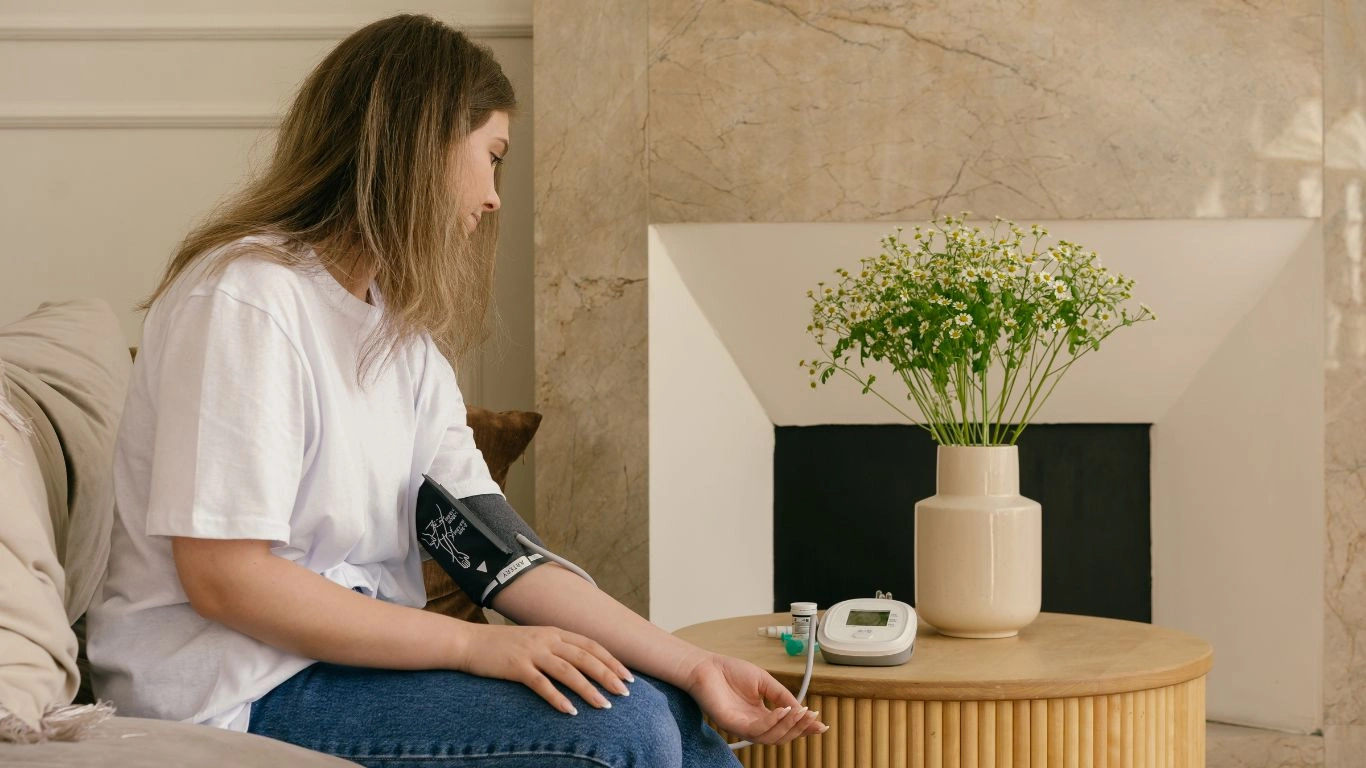How to Reduce Sodium Intake Without Sacrificing Flavor 🌱💥
Okay, we’ve all been there. You’re trying to eat healthier, maybe lower your sodium, and then you’re hit with that all-too-familiar realization: “This tastes like cardboard.” It’s like, why do healthy foods have to be so bland? Well, I’ve got good news for you: you can actually reduce your sodium intake without making your taste buds feel like they’re on a vacation in the desert. Let’s dive in and figure out how to make it happen.
Why Should You Even Care About Sodium? 🤷♀️
I get it, at first, you might be thinking, “It’s just salt, who cares?” But here’s the thing: too much sodium can mess with your blood pressure, put a strain on your heart, and leave you feeling all sorts of sluggish. Doctors recommend keeping your sodium intake to about 2,300 mg per day (which, by the way, is like one teaspoon of salt). The reality is most people are consuming way more than that. It’s easy to get carried away when you’re eating fast food or relying on processed foods. Trust me, I’ve been there.
So, How Do You Cut Back Without Losing Flavor? 🍽️
Alright, let’s get into the good stuff. How can we kick the salt habit but still enjoy eating? Here are some real, down-to-earth tips that actually work.
1. Start by Being a Label Detective 👀
This one’s super important. Most of the sodium we consume sneaks in through processed foods. You’d be shocked to see how much salt is hiding in things like canned soup, salad dressings, or even frozen veggies. So, get into the habit of reading labels. I’m not saying you need to be a pro at it, but just check the sodium content per serving and see what you’re working with.
2. Embrace the Power of Herbs & Spices 🌿
If you’re relying on salt to make your food taste good, it’s time to shake things up! Herbs and spices are the MVPs here. Things like garlic, basil, rosemary, cumin, and paprika can give your dishes so much flavor, you won’t even miss the salt. I’m telling you, a little fresh rosemary on potatoes or a sprinkle of cumin in a stir-fry? Game changer.

3. Salt Substitutes—But, Buyer Beware! 🧂
Okay, I get it. Sometimes you just need that salty flavor. Salt substitutes like potassium chloride can be a decent option. But, and this is important, not everyone can handle these. If you have kidney issues or need to watch your potassium levels, definitely chat with your doctor before trying these.
4. Go Fresh, Go Whole 🌽🍗
When in doubt, fresh is best. Fresh vegetables, fruits, and lean proteins are naturally low in sodium. I always find that when I cook from scratch, not only do my meals taste better, but I can control what goes in them. Plus, fresh foods are packed with nutrients that processed stuff can’t compete with.
5. Acid Is Your Friend (No, Really!) 🍋
If you haven’t tried adding lemon juice or vinegar to your meals, you’re missing out. Acidity can give your dishes that extra zing without needing salt. I love throwing a little balsamic vinegar on roasted veggies or squeezing lemon over grilled fish. It just brings everything to life.

6. Gradual Cuts Are Key 🔪
Look, we all know it’s not easy to go from salty food lover to low-sodium enthusiast overnight. So don’t feel like you have to be perfect from day one. Start slow. Maybe cut back by half the amount of salt you usually use and give your taste buds time to adjust. Before you know it, you’ll be eating less salt and still loving every bite.
Common Struggles (And How to Deal with Them) 😬
1. “My Food Tastes So Boring Now!”
I get it. It’s tough to make that switch. But try adding things like a splash of balsamic vinegar, a squeeze of lime, or a sprinkle of your favorite herbs. Those little touches can transform a boring dish into something exciting.
2. “I Can’t Find Low-Sodium Stuff Anywhere”
Been there too. But guess what? More and more stores are stocking low-sodium or salt-free alternatives. You just have to dig a little deeper—check the natural foods section, or consider making your own sauces and broths. It’s easier than you think.
3. “I Just Really Want Chips…”
Oh, the snack cravings. I’ve totally been at that point. Try some unsalted nuts, roasted chickpeas, or even air-popped popcorn. You can still have that crunch without loading up on sodium.
Real People, Real Results 📈
Sarah’s Low-Sodium Adventure
Sarah used to rely on pre-packaged meals and takeout. After realizing that her sodium levels were through the roof, she decided to make a change. She swapped out salty condiments for fresh herbs and homemade dressings, and slowly cut back on processed foods. It wasn’t easy at first, but now, she can’t imagine going back to all that salt. Her blood pressure has improved, and she feels more energized. Plus, she’s learned that eating fresh and cooking at home doesn’t have to be a chore—it can be fun!
Mark’s Success Story
Mark had high blood pressure and was hooked on salty snacks (I mean, who doesn’t love potato chips, right?). He started by swapping his salty snacks for healthier options, like unsalted almonds and roasted veggies. Slowly, he also started making his own sauces at home, cutting out the canned, sodium-laden ones. In just a few months, Mark dropped his sodium intake, and his doctor gave him the thumbs up for improvement.

Key Takeaways / Quick Recap 📝
So here’s the bottom line:
- Read your labels—know where your sodium is coming from.
- Load up on herbs and spices—they’re flavorful and salt-free.
- Fresh food is the way to go—processed foods can sneak in a lot of sodium.
- Acidic flavors like lemon and vinegar can help you cut back on salt.
- Take it slow—don’t feel like you have to go cold turkey on salt. Baby steps!
FAQs 🔍
Q: Can I still eat at restaurants while cutting back on sodium?
Absolutely! Just ask for sauces and dressings on the side, or request lower-sodium options. Some places even offer healthier menu choices these days.
Q: What’s the ideal sodium intake?
Experts say 2,300 mg a day is the max, but aiming for 1,500 mg is even better for heart health. It’s totally doable with a little planning!
Q: Can I still eat processed foods if I want to reduce sodium?
Sure, just be smart about it. There are low-sodium versions of many processed foods out there—look for them in your store, or better yet, make your own versions at home!
References 📚
Disclaimer ⚠️
Hey, just a heads up—this post is for informational purposes only. Always talk to your doctor or a nutritionist before making any major changes to your diet, especially if you have health conditions.
Let’s Chat! 💬
Now, it’s your turn. How do you manage your sodium intake without making your meals feel like a punishment? Drop a comment below or share your favorite sodium-free tips. And hey, if you found this helpful, don’t forget to share it with a friend who could use some flavor in their life!

Dr. Gwenna Aazee is a board-certified Internal Medicine Physician with a special focus on hypertension management, chronic disease prevention, and patient education. With years of experience in both clinical practice and medical writing, she’s passionate about turning evidence-based medicine into accessible, actionable advice. Through her work at Healthusias.com, Dr. Aazee empowers readers to take charge of their health with confidence and clarity. Off the clock, she enjoys deep dives into nutrition research, long walks with her rescue pup, and simplifying medical jargon one article at a time.






